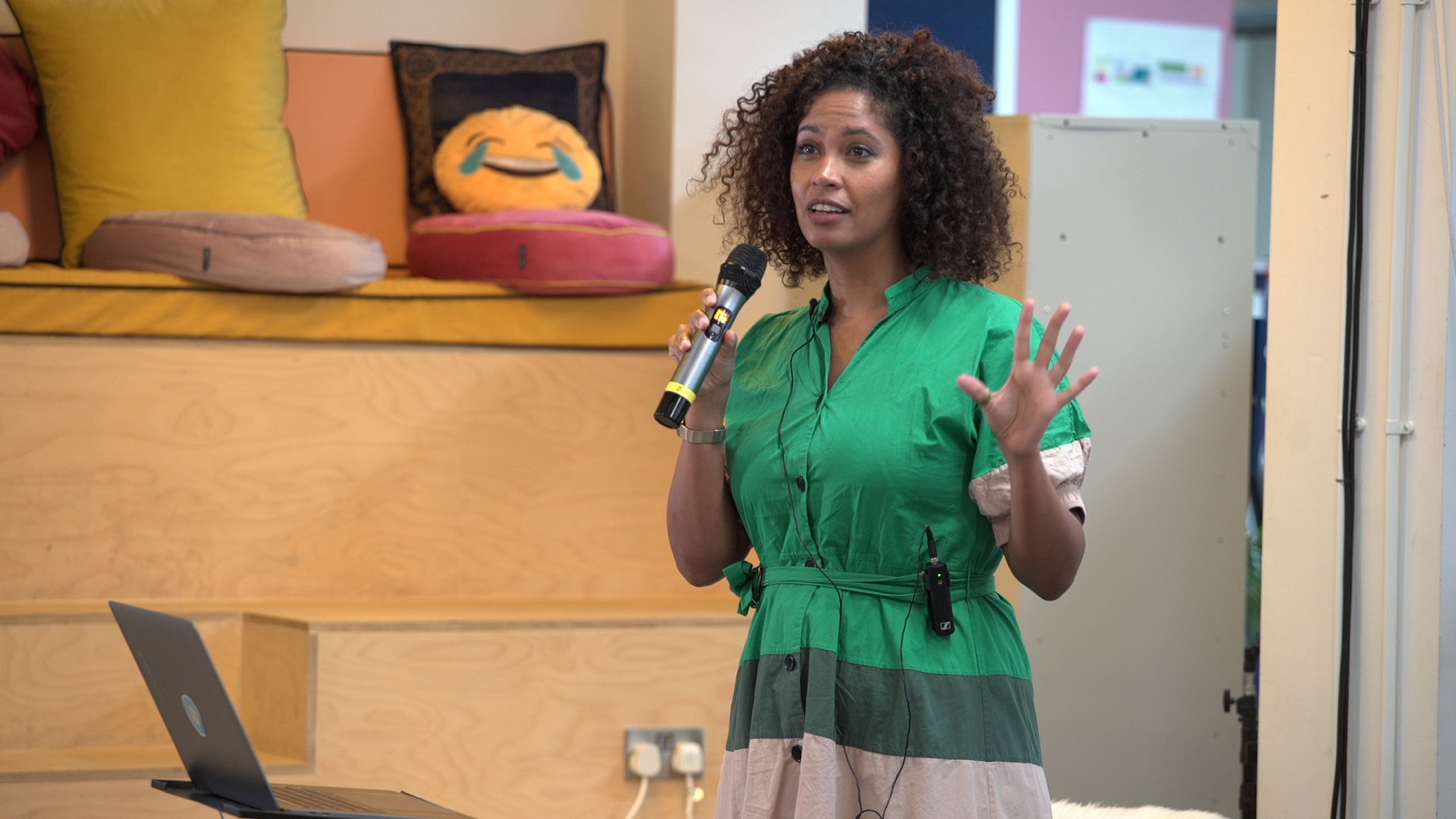To celebrate European Day of Languages in late September this year, we hosted The Ultimate Language Learning Workshop at the Memrise office with some of the world’s greatest language learners. They included the unsurpassable Richard Simcott (speaker of more than 50 languages), the musical linguist Desta Haile, film set pronunciation coach Chase Emery Davis and Memrise’s own pedagogic leader and speaker of more than 15 languages, Rob Patterson.
Three overarching themes came out in their talks. Here, we'll reveal what they are, and what we're building at Memrise to make these lessons easier for you to action...
1) Only learn what you actually need
Each of us (even Richard Simcott!) has a finite amount of motivation. So save your motivation for the things that you really need to learn to get conversational. Don't waste any effort learning other stuff that might be useful one day. You can always learn that later.
On words: Richard pointed out that there's no point in learning the name of every country in one go. Or all the numbers, or colours, or every type of fish. Just learn the words you need to say right now.
On grammar: the same again. Richard suggested that we focus on simple grammar that allows us to express what we need. For example, this could be just learning the first person or "I" form of a verb first - don't worry about learning the full conjugation table off by heart as a beginner. Then, when you're ready, add the "you" form, then "he" and "she" forms, and the plurals can wait a bit.
How Memrise makes this easy: "Scenarios".
Traditionally, language courses are based on a syllabus: a list of the things that the teacher thinks you should learn. That means you inevitably end up learning a ton of things that are perfectly reasonable and sensible to learn, but which you don't end up needing to use much. This saps your motivation, and it isn’t how polyglots learn.
Memrise's new "scenarios" structure is built around what each individual learner needs. You choose from thousands of mini word-lists that are useful in specific real life scenarios. You can learn them in any order, so you just pick the ones that you need according to your own goals or interests.
2) Surround yourself in content you love in the target language
Desta told us a story of how she first discovered she could learn languages. She had totally failed to learn French after years of lessons at school, and even struggled with the numerous languages that were spoken in her direct family as a child. Then she got a job as a backing singer, singing in French. Within 2 months she was conversational!
She tried it again with Portuguese, then Turkish... all with the same effect! Now, when she goes to learn a new language, she finds music she loves. She starts just by listening to it, over and over. Next, she learns a few of the words. Then listens some more. Then learns a few more words. It’s a painless process; listening to great music and exploring what it means. By focusing on content that you love listening to anyway, you give your brain the time it needs to make sense of what you’re hearing. You unlock your natural language processing ability - an ability that all humans have.
How Memrise makes this easy: vocabulary from videos.
Inspired by these ideas, we've built a tool that pulls out key vocabulary from videos from anywhere on the web. We’ll be rolling this out to out many thousands of videos over the next few months, and millions by the end of next year. We'll be able to turn any video you can find on YouTube, TikTok or Instagram into a "scenario" so you can learn the words in a lesson.
3) Work to overcome fear of being judged: everyone fears feeling dumb
It was great to hear stories from these people who speak so many languages, and finding out that they still have trouble getting over their fear of speaking. Rob told us how he spent months studying a new language then, when he got to the country, he lost his nerve and spoke in English. These 'screw-ups' happen to the best of us. Richard told us about the time he accidentally mixed up the pronunciation of "chocolate syrup" in Macedonian , asking for "chocolate diarrhoea" in his coffee instead. Oops! The secret is to work out how to overcome the fear of these mistakes happening: that pushes you to keep on trying. So how do you do that?
Back to songs! One of our speakers, Chase, (who sings professionally in 24 languages) explained that pronunciation is exaggerated when you sing, but it's also simplified. He told us that it's actually easier to sing well in a foreign language than to speak it. Start by singing songs - to yourself, in the shower, wherever - and you'll find it's much less of an emotional jump to start speaking to people!
Desta also uses songs, and Richard and Rob have their own ways of practicing what they want to say before going out to use it live. Whether you like singing or not - practice is the part you can’t ignore.
What we're building to make this easy: MemBot (coming soon!)
Singing before you speak fits well with Memrise's vocabulary from videos and our scenario syllabus. But we've also got another big feature aimed at helping you overcome your fear of sounding dumb when you speak another language: an AI language partner. Chatbots have been a thing for a while. They're built around conversation trees, where you say one thing and the computer is programmed to respond in a particular way.
But MemBot is different.
It's designed to behave as an infinitely patient human language partner. It responds to any situation and anything you say just like a human would - and it give you a different response every time. It also helps you; it'll translate what it says if you don't understand, it can correct you (gently) if you make a mistake, and it can suggest replies if you're stuck.
MemBot is as much like a human as it's possible to be, with one big difference: it's a computer program, so it will never judge you! This means that you can hone your language skills in private until you build the confidence to chat to real people.
So there it is...
1) Learn only what you need
2) Surround yourself in media content you love
3) Practice in private to overcome your fear of speaking
Share in the comments stories of when you've felt like a fool when trying to speak another language, and how you overcome that fear!









